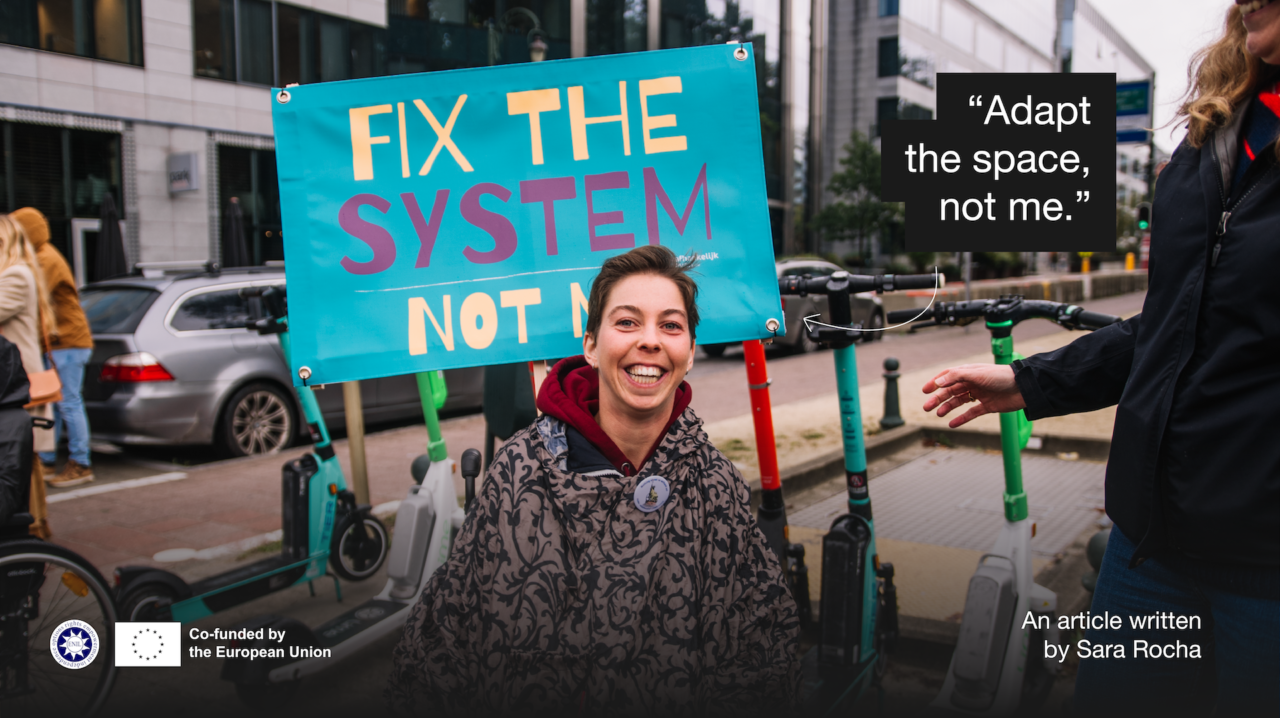I would like you to imagine witnessing a supervisor at work saying to a wheelchair-user “We would like you to make more of an effort to go up the stairs, you can’t expect everyone to change for you”, or to a Deaf person: “We want to do a workshop for you to learn how you can lip-read and fit with your coworkers. If we give you a sign language interpreter all your workers will want one too”. Seems ridiculous, right?
I witnessed these exact scenarios happening to autistic people in the workplace, in school, and public places. Reasonable adaptations are an essential part of independent living, being able to access employment and stay employed. However, employers often have no idea how to accommodate neurodivergent people.
A Human Resources company that refused training to adapt their hiring practices and instead proposed for them to give a workshop to teach autistic people how to behave in an interview. A well-funded inclusion organisation in employment developing projects to teach neurodivergent people how to behave and barely, if any, on teaching companies how to adapt their workplaces. A company requiring an autistic employee to join their coworkers at lunch when the canteen was not adapted and overwhelming. The refusal of adaptations for ADHD because it would be an advantage compared with other coworkers. These were just some I had contact with, and whenever I hear “we always make sure the process is equal for everyone”, I know there will be an absence of equity in the processes of that organisation.
Neurodivergent traits are often associated with heavily stigmatised social behaviour such as communicating literally and stimming by autistic people, impulsivity and emotional deregulation by people with ADHD, or physical and vocal tics in Tourette’s. Since a large part of society, even some people advocating for the rights of neurodivergent people, associate any non-normative behaviour with being ‘badly behaved’ or believes these can be modified or controlled, a lot of employers still see neurodivergent traits as something the employee needs to work on and make an effort with, instead of their moral and legal responsibility to adapt the workplace. However, neurodivergent traits are not behavioural issues, even though behaviours are the way our internal differences in the way we communicate, process information, and get overwhelmed manifest and become visible.
Eye contact in interviews will not make us more or less competent, and changes in how hiring procedures are essential to not discriminate. Training for human resources, supervisors, and coworkers can change attitudinal barriers and make it easier for the neurodivergent worker to be understood and supported. The use of noise-cancelling headphones, fixed work areas, remote flexible working, silent rooms, software to support communication, organisation or spelling, voice-to-text software, and many others, can completely change our ability to perform our work with a low investment required from the companies. These changes can also be helpful to people with psychosocial disabilities, carers, employees facing burnout, and many others.
The social model of disability is essential to independent living, since it shifts the problem from the person being discriminated, us, to the barriers we face, and allows us to address them and change them. However, it seems neurodivergent people were left behind in this shift, and we keep hearing, even in disability conferences and inclusion projects, how we need to be trained in social skills, instead of changing the environment around us. We learned from years of advocacy that putting the burden on the person will not change the system or improve their inclusion. Autistic people are disproportionately affected by unemployment, which potentially affects up to 90%, and have an incredibly high rate of suicide, with one of the reasons being precisely the ‘little’ efforts we are constantly asked to make to look ‘normal’. 1,2
Neurodivergent people were part of, and often essential, the progress in disability rights we had in the last decades. So, I will use this text to ask you, fellow disability advocate, to stand with us against projects and research that see us as ‘less than’ or a disorder to be normalised into compliance. Refuse to fund projects focused on patronising and pathologizing views of neurodivergency, and instead fund us, neurodivergent advocates and neurodivergent-led organisations, to provide a systemic and structural shift in how we see and provide support for the inclusion of neurodivergent people. Adapt the space, not us.
- European Parliament resolution of 4 October 2023 on harmonising the rights of autistic persons (2023/2728(RSP))
- Cassidy, S. A., Gould, K., Townsend, E., Pelton, M., Robertson, A. E., & Rodgers, J. (2020). Is Camouflaging Autistic Traits Associated with Suicidal Thoughts and Behaviours? Expanding the Interpersonal Psychological Theory of Suicide in an Undergraduate Student Sample. Journal of autism and developmental disorders, 50(10), 3638–3648. https://doi.org/10.1007/s10803-019-04323-3



